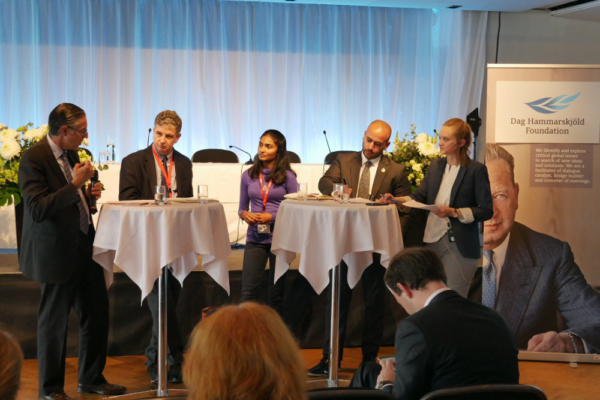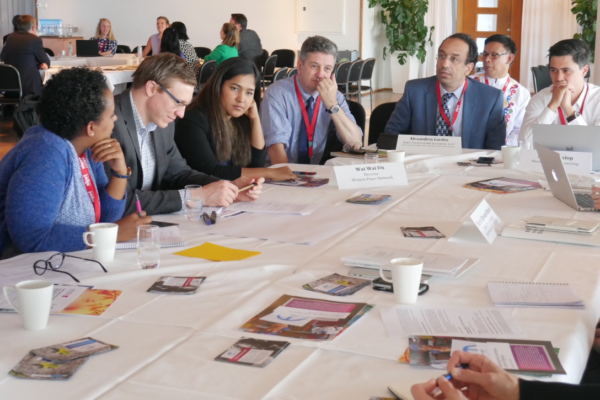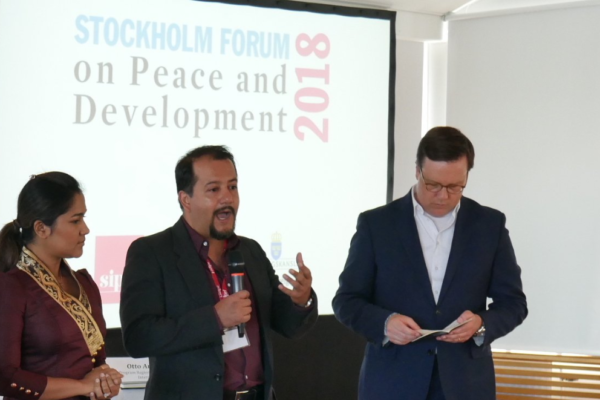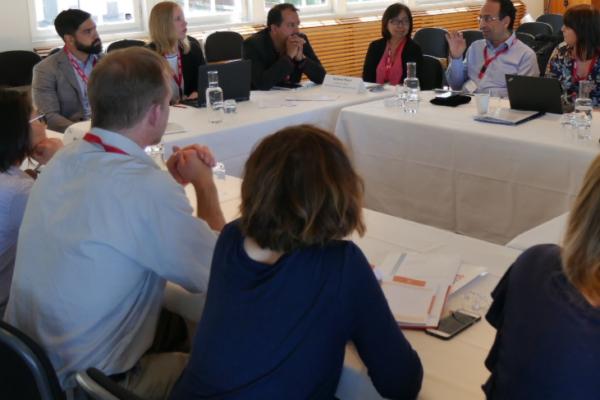
https://www.interpeace.org/2018/05/security-moving-action/
Young people make up a quarter of the world’s population and many are already engaged in efforts to promote more peaceful and inclusive societies and prevent conflict. Despite the fact that they bring new and important perspectives to the table, they continue to face barriers to participation at the international, national and local levels. The two-part session hosted by Interpeace and the Dag Hammarskjöld Foundation, examined some of the key recommendations of the global Progress Study on Youth, Peace and Security, mandated by UN Security Council Resolution 2250 to identify the tools, resources and mechanisms needed to strengthen youth engagement in policy processes and programme implementation. Each part of the session began with an expert introduction, which was followed by parallel breakout discussions.
The first part of the session took place on May 8, examining the policy implications of the Progress Study on Youth, Peace and Security. It began with an opening panel of the following experts:
- Oscar Fernandez-Taranco, Assistant Secretary-General for Peacebuilding Support, United Nations Peacebuilding Support Office
- Thevuni Kotigala, Member of Advisory Group of Experts for the Progress Study
- Barik Mhadeen, Researcher, West Asia-North Africa (WANA) Institute
- Graeme Simpson, Lead Author for the Progress Study and Director of Interpeace USA
- Moderator: Sarah Smith, Programme Officer, the Dag Hammarskjöld Foundation

Photo credit: The Dag Hammarskjöld Foundation
The panel event was followed by parallel breakout discussions, which addressed financing of youth organizations and initiatives, the role of political will in implementing 2250 and the role of gender.

Photo credit: The Dag Hammarskjöld Foundation
After the session, Thevuni Kotigala, shared her experience being part of the Advisory Group of Experts for the Progress Study on Youth, Peace and Security.
The second part of the session took place on May 9, examining how the recommendations of the study can be taken into action. The session began with an opening panel of the following experts:
- Otto Argueta, Programmes Coordinator, Interpeace (Latin America)
- Wai Wai Nu, Director, Women Peace Network (Myanmar)
- Akylai Karimova, Project Manager, Search for Common Ground (SFCG) – Kyrgyzstan
- Erike Tanghoj, Desk Officer Youth, Peace and Security, Folke Bernadotte Academy
- Moderator: Scott Weber, Director-General, Interpeace

Photo credit: The Dag Hammarskjöld Foundation
After the panel event, participants discussed methods of how to operationalize the YPS recommendations: reaching out to young people most vulnerable to exclusion, building on established youth initiatives and partnerships and coordination, between youth networks and YPS coalitions.

Photo credit: The Dag Hammarskjöld Foundation
Achim Wennman, Executive Coordinator of the Geneva Peacebuilding Platform, talks about the contribution of Geneva based organizations to the Stockholm Forum on Peace and Development.










Add new comment